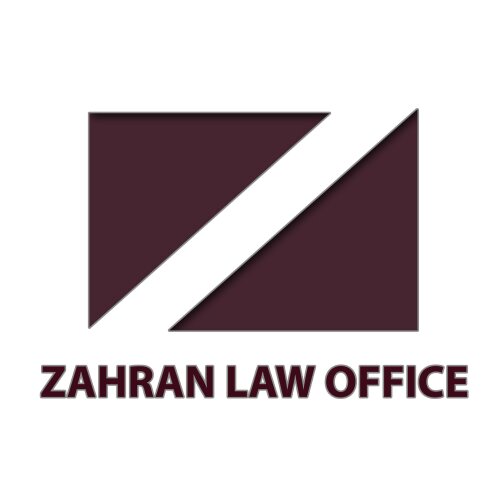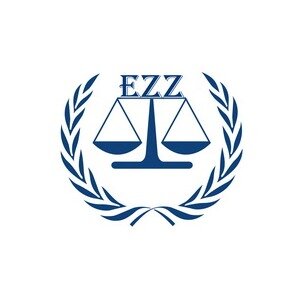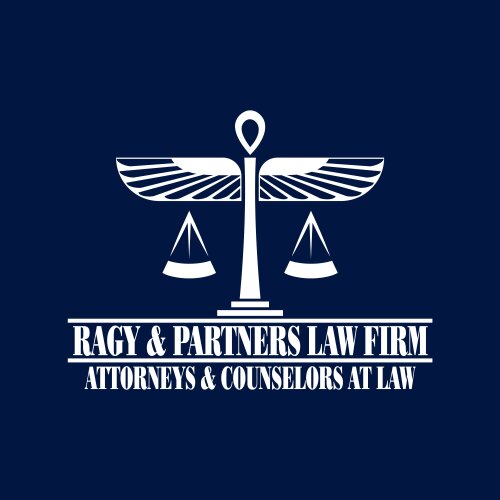Best Bankruptcy & Debt Lawyers in Cairo
Share your needs with us, get contacted by law firms.
Free. Takes 2 min.
List of the best lawyers in Cairo, Egypt
About Bankruptcy & Debt Law in Cairo, Egypt
Bankruptcy and debt laws in Cairo, Egypt, are designed to provide a legal framework for individuals and businesses struggling with insolvency and debt-related issues. The primary objective of these laws is to facilitate fair and efficient debt resolution while protecting the interests of creditors and debtors. Egypt's legal system allows for restructuring, liquidation, or bankruptcy proceedings, depending on the circumstances of the financial distress. The process can be complex, requiring meticulous navigation through various legal and procedural nuances.
Why You May Need a Lawyer
Dealing with bankruptcy and debt issues is often a complex affair that can have significant legal and financial consequences. Common scenarios where legal assistance may be necessary include:
1. Preparing to file for bankruptcy: Lawyers can help determine eligibility and the most suitable type of bankruptcy (e.g., reorganization or liquidation).
2. Negotiating with creditors: Experienced lawyers can represent your interests when negotiating repayment plans or debt restructuring agreements.
3. Understanding legal rights and obligations: A lawyer can clarify the legal implications and obligations under Egyptian bankruptcy and debt laws.
4. Defending against creditors’ claims: Legal professionals can defend you against aggressive collection practices or fraudulent claims.
5. Managing court proceedings: Navigating through court processes requires technical knowledge of local laws and procedures.
Local Laws Overview
Egypt's Bankruptcy Law No. 11 of 2018 is the principal legislation governing insolvency proceedings in Cairo, Egypt. Key aspects of the law include:
- **Rehabilitation Procedures**: This framework is for businesses that have a chance of recovering and involves court-approved repayment plans.
- **Liquidation**: For businesses or individuals unable to meet their debts, liquidation proceedings manage the orderly selling-off of assets.
- **Creditors’ Committee**: This committee plays a vital role in approving recovery or liquidation plans proposed by debtors.
- **Automatic Stay**: Filing for bankruptcy provides an automatic stay on all debt collection activities, protecting the debtor from legal actions by creditors.
- **Priority of Claims**: The law outlines the priority of claims in the distribution of a debtor's assets, giving precedence to secured creditors, employees, and other specified groups.
Frequently Asked Questions
What is the purpose of filing for bankruptcy in Egypt?
The purpose is to provide debt relief and a structured way to repay debts or liquidate assets, offering a fresh start for debtors while ensuring fair treatment for creditors.
Who is eligible to file for bankruptcy in Cairo?
Both individuals and businesses facing financial insolvency and unable to meet debt obligations may be eligible to file for bankruptcy under Egyptian law.
How does bankruptcy affect my personal assets?
It depends on the type of bankruptcy filed. In liquidation cases, personal assets may be sold to pay creditors, whereas restructuring might allow you to retain them.
How long does the bankruptcy process take in Egypt?
The duration varies based on the complexity of the case, the type of bankruptcy, and how cooperative creditors and debtors are during proceedings.
Will bankruptcy impact my ability to get credit in the future?
Yes, a bankruptcy filing may affect your creditworthiness, but rebuilding credit is possible over time with financial prudence and discipline.
What is debt restructuring?
Debt restructuring involves negotiating with creditors to modify the terms of your debt, such as extending payment periods or reducing interest rates, allowing more manageable repayments.
Are there alternatives to filing for bankruptcy?
Yes, alternatives include debt consolidation, settlement, or negotiation with creditors for a more flexible repayment schedule outside of court proceedings.
Can I file for bankruptcy myself without a lawyer?
While legally allowed, it is advisable to seek professional legal counsel due to the complexity of laws and to ensure that your rights are protected.
How are creditors notified of my bankruptcy filing?
Creditors are notified through the court system, ensuring all parties are aware of the proceedings and facilitating coordination through creditors’ meetings.
What happens to my business if I file for bankruptcy?
The business may be reorganized or liquidated, depending on the bankruptcy type and financial situation; details will be court-determined or negotiated with creditors.
Additional Resources
Several resources can provide valuable assistance and information:
- The Egyptian Bankruptcy Court: Handles bankruptcy filings and procedural guidance.
- The Ministry of Justice: Offers insights into prevailing laws and legislative updates related to bankruptcy and debt.
- Financial Consultancy Firms: Specialize in debt management and financial restructuring consultancy.
- Consumer Protection Agency: Provides advisory services and support related to financial rights and debt disputes.
Next Steps
If you require legal assistance in matters of bankruptcy and debt, consider the following steps:
1. **Consult Legal Experts**: Engage a lawyer specializing in bankruptcy and debt to assess your situation and provide guidance.
2. **Gather Relevant Documentation**: Collect financial records, creditor communications, and any legal notices related to your situation.
3. **Assess Your Financial Options**: Explore all debt relief options, considering both legal and financial implications.
4. **File Necessary Documents**: Work with your lawyer to prepare and file required documents with the relevant authorities.
5. **Attend Court Proceedings**: Participate in any necessary court hearings with legal representation to protect your interests.
Taking these steps ensures that you are prepared and informed as you navigate the complexities of bankruptcy and debt law in Cairo, Egypt.
Lawzana helps you find the best lawyers and law firms in Cairo through a curated and pre-screened list of qualified legal professionals. Our platform offers rankings and detailed profiles of attorneys and law firms, allowing you to compare based on practice areas, including Bankruptcy & Debt, experience, and client feedback.
Each profile includes a description of the firm's areas of practice, client reviews, team members and partners, year of establishment, spoken languages, office locations, contact information, social media presence, and any published articles or resources. Most firms on our platform speak English and are experienced in both local and international legal matters.
Get a quote from top-rated law firms in Cairo, Egypt — quickly, securely, and without unnecessary hassle.
Disclaimer:
The information provided on this page is for general informational purposes only and does not constitute legal advice. While we strive to ensure the accuracy and relevance of the content, legal information may change over time, and interpretations of the law can vary. You should always consult with a qualified legal professional for advice specific to your situation.
We disclaim all liability for actions taken or not taken based on the content of this page. If you believe any information is incorrect or outdated, please contact us, and we will review and update it where appropriate.
Browse bankruptcy & debt law firms by service in Cairo, Egypt
Cairo, Egypt Attorneys in related practice areas.













